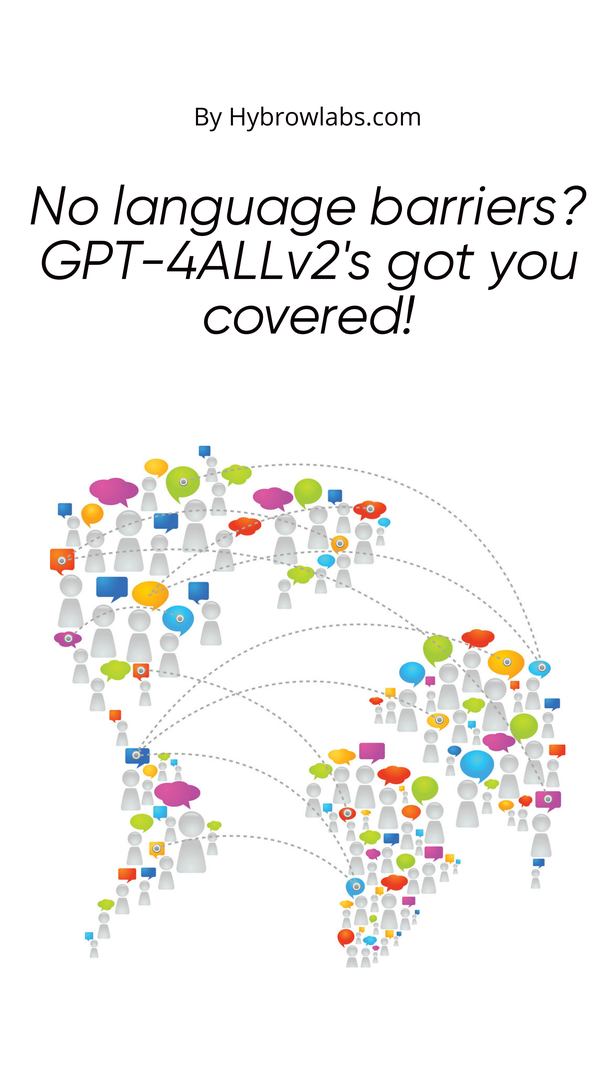
Have you ever imagined a world where language barriers don't exist? Where you could communicate with anyone, anywhere, in any language, without the need for translation services? Well, thanks to advancements in AI language models like GPT-4ALLv2, that world may not be too far off. But how exactly does GPT-4ALLv2 work & what are its limitations? In this article, we'll explore the exciting advancements & potential limitations of GPT-4ALLv2 & what it means for the future of communication. So let’s dive in.
Understanding GPT-4ALLv2:
GPT-4ALLv2 is the latest iteration of AI language models, developed by OpenAI. It is an advanced language processing algorithm that uses deep learning techniques to analyze & generate human-like language. With an expanded vocabulary & improved natural language generation capabilities, GPT-4ALLv2 represents a major advancement in the field of AI language models.
The importance of AI language models like GPT-4ALLv2 cannot be overstated. In a world where communication is key, the ability to process & generate human-like language can have a profound impact on how we interact with each other, access information & conduct business. From chatbots & virtual assistants to content creation & translation, AI language models have the potential to transform the way we communicate & break down language barriers. However, as with any technology, it's important to consider the potential limitations & ethical concerns that come with the development & use of AI language models.
How has GPT-4ALLv2 advanced the field of AI language processing?
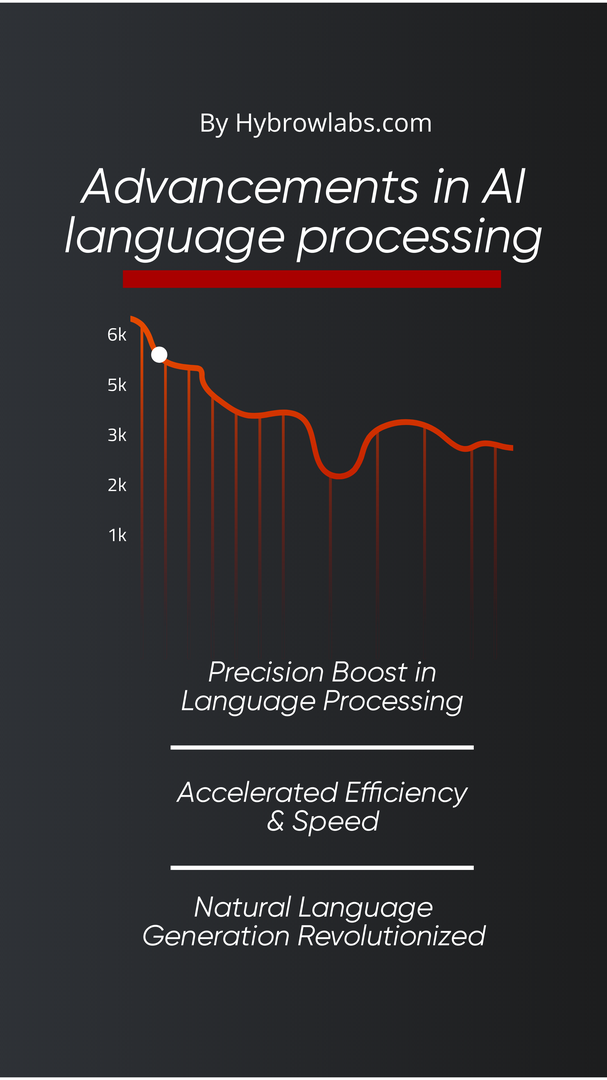
1. Increased accuracy in language processing:
GPT-4ALLv2 has shown significant improvements in accuracy when it comes to language processing. With its advanced deep learning techniques, it can analyze & interpret human language with greater precision than ever before.
2. Expanded vocabulary & contextual understanding:
One of the key improvements of GPT-4ALLv2 is its expanded vocabulary & contextual understanding. It can now recognize and interpret complex language structures & understand the meaning behind them, providing more accurate & natural responses.
3. Improved efficiency & speed:
GPT-4ALLv2 has also shown improvements in efficiency & speed, allowing for faster processing and response times. This means that it can handle larger volumes of data & perform tasks more quickly & efficiently than previous AI language models.
4. Enhanced natural language generation capabilities:
With its advanced natural language generation capabilities, GPT-4ALLv2 can now generate human-like language with greater fluency & coherence. This means that it can create more natural-sounding responses & generate content that is virtually indistinguishable from that created by humans.
Innovative Applications of GPT-4ALLv2:
GPT-4ALLv2 is not just an advanced language processing algorithm, but also a powerful tool that can revolutionize the way we communicate & interact with technology. Thanks to its expanded vocabulary, improved natural language generation capabilities & enhanced accuracy, GPT-4ALLv2 has numerous potential applications across a variety of fields. From text completion and generation to chatbots & virtual assistants, here are some of the most exciting applications of GPT-4ALLv2:
1. Text completion & generation:
GPT-4ALLv2's advanced natural language generation capabilities make it an ideal tool for generating text. It can be used to complete sentences, paragraphs, and even entire articles, with a level of coherence and fluency that is virtually indistinguishable from that created by humans.
Here is an example of how GPT4ALLv2 can be used for text generation:
import openaiopenai.api_key = "YOUR_API_KEY"prompt = "Write a short story about a time traveler"model = "text-davinci-002"response = openai.Completion.create(engine=model,prompt=prompt,max_tokens=1024,Sn=1,stop=None,temperature=0.5,)story = response.choices[0].textprint(story)
In this code snippet, we are using the OpenAI API to generate a short story about a time traveler. We provide a prompt for the story & specify the GPT4ALLv2 model to use (‘text-davinci-002’). The ‘max_tokens’ parameter controls the length of the generated text, while the ‘temperature’ parameter controls the creativity of the output.
2. Sentiment analysis:
With its ability to understand & interpret human language, GPT-4ALLv2 can be used for sentiment analysis. It can analyze text and determine the emotional tone of the content, providing insights into how people feel about a particular topic or brand.
Here is another example of how GPT4ALLv2 can be used for sentiment analysis:
import openaiopenai.api_key = "YOUR_API_KEY"text = "I really enjoyed the movie, it was great!"model = "text-davinci-002"response = openai.Completion.create(engine=model,prompt=f"Sentiment analysis: {text}",max_tokens=1,n=1,stop=None,)sentiment = response.choices[0].textprint(sentiment)
In this code snippet, we are using GPT4ALLv2 to perform sentiment analysis on a piece of text. We provide the text as the prompt & specify the GPT4ALLv2 model to use (‘text-davinci-002’). The output of the model is a single token that indicates the sentiment of the input text.
3. Translation:
GPT-4ALLv2's expanded vocabulary & improved accuracy make it an ideal tool for translation. It can recognize & interpret complex language structures & understand the meaning behind them, providing more accurate translations that are virtually indistinguishable from those created by humans.
Here's an example code snippet using Hugging Face's Transformers library to translate English text to Spanish using GPT-4ALLv2:
from transformers import pipelinetranslator = pipeline("translation_xx_to_yy", model="openai/gpt4allv2-xx-yy")text_to_translate = "This is a test sentence."translated_text = translator(text_to_translate, src="en", tgt="es")print(translated_text)
4. Chatbots & virtual assistants:
GPT-4ALLv2 can be used to power chatbots & virtual assistants, allowing for more natural & human-like interactions with technology. It can understand & respond to user queries, provide information & even carry out tasks, with a level of fluency & accuracy that was previously impossible.
Here's an example code snippet using the Hugging Face Transformers library to create a simple chatbot using GPT-4ALLv2:
from transformers import pipelinechatbot = pipeline("text-generation", model="openai/gpt4allv2")while True:user_input = input("You: ")chatbot_output = chatbot(user_input)[0]['generated_text']print("Chatbot:", chatbot_output)
5. Content creation & curation:
GPT-4ALLv2 can be used to generate content for a variety of applications, from social media posts to news articles. It can also be used to curate content, providing personalized recommendations based on user preferences & interests.
Here's an example code snippet using the Hugging Face Transformers library to generate a blog post introduction using GPT-4ALLv2:
from transformers import pipelinecontent_generator = pipeline("text-generation", model="openai/gpt4allv2")generated_content = content_generator("Introduction to the topic of AI language models.", max_length=200, do_sample=True, temperature=0.7)print(generated_content[0]['generated_text'])
What are the Limitations of GPT-4ALLv2?
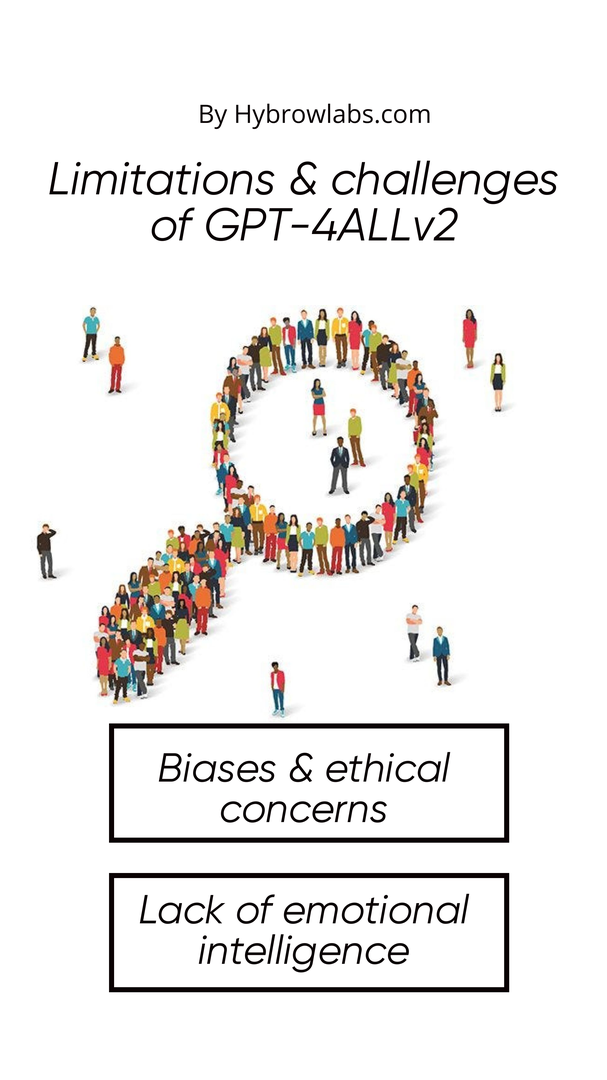
While GPT-4ALLv2 represents a significant advancement in AI language models, it is important to note that it is not without its limitations. Some of the key limitations of GPT-4ALLv2 include:
1. Biases & ethical concerns:
Like any machine learning model, GPT-4ALLv2 can be susceptible to biases, particularly if the training data used to develop the model is itself biased. This raises ethical concerns around the use of the algorithm, particularly in sensitive applications such as hiring or loan approvals.
2. Limited understanding of context & nuance:
While GPT-4ALLv2 has an expanded vocabulary & improved accuracy, it still has a limited understanding of context & nuance. This means that it may struggle to understand idioms, sarcasm & other forms of language that rely on context to convey meaning.
3. Lack of emotional intelligence:
GPT-4ALLv2 is a purely linguistic algorithm & does not have emotional intelligence. It cannot recognize or respond to emotions in the same way that humans can, making it less effective in applications where emotional intelligence is important.
4. Dependence on training data & the need for constant updates:
Like all machine learning models, GPT-4ALLv2 is dependent on the training data used to develop it. As language evolves & changes, the algorithm will need to be updated with new data to maintain its accuracy & relevance. This can be a time-consuming & resource-intensive process.
AI-Language Models (GPT-4ALLv2): What's Next?
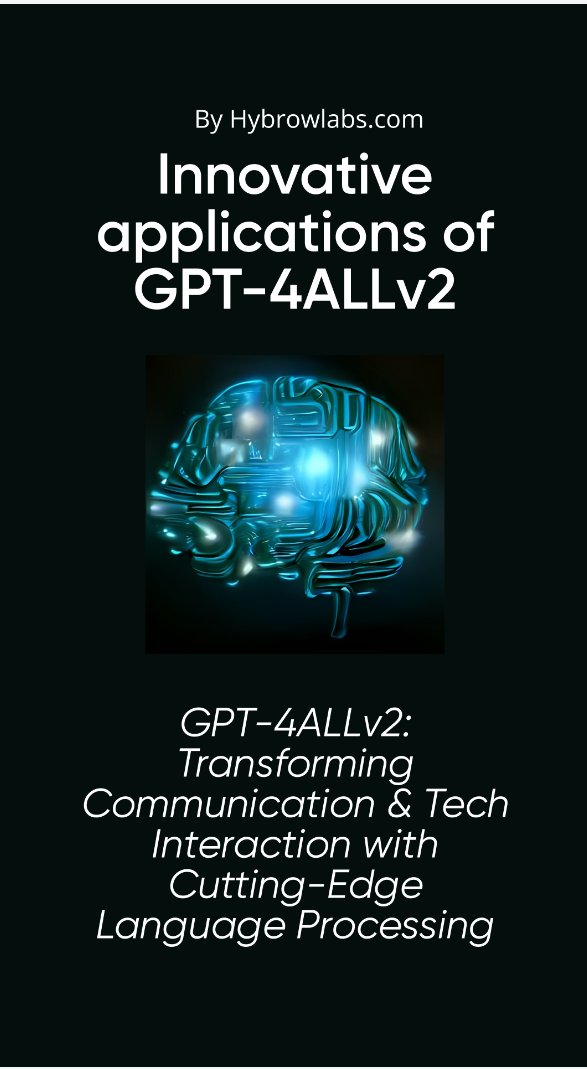
1. GPT-4ALLv2's impact on the industry:
GPT-4ALLv2's advanced natural language generation capabilities & expanded vocabulary will undoubtedly have a significant impact on industries such as content creation, customer service, & data analysis. The increased accuracy and efficiency of AI language models will allow businesses to automate tasks & improve customer interactions in ways that were previously impossible.
2. Potential advancements in AI-language models:
While GPT-4ALLv2 represents a significant advancement in the field of AI language models, there is still much room for improvement. Future advancements in the field could include improved context & nuance understanding, enhanced emotional intelligence & greater sensitivity to biases & ethical concerns.
3. Ethical considerations & regulations:
As AI language models become more widespread, there are important ethical considerations & regulations that need to be taken into account. For example, there is a need to ensure that these models are not biased, that they do not perpetuate harmful stereotypes & that they respect user privacy.
Conclusion:
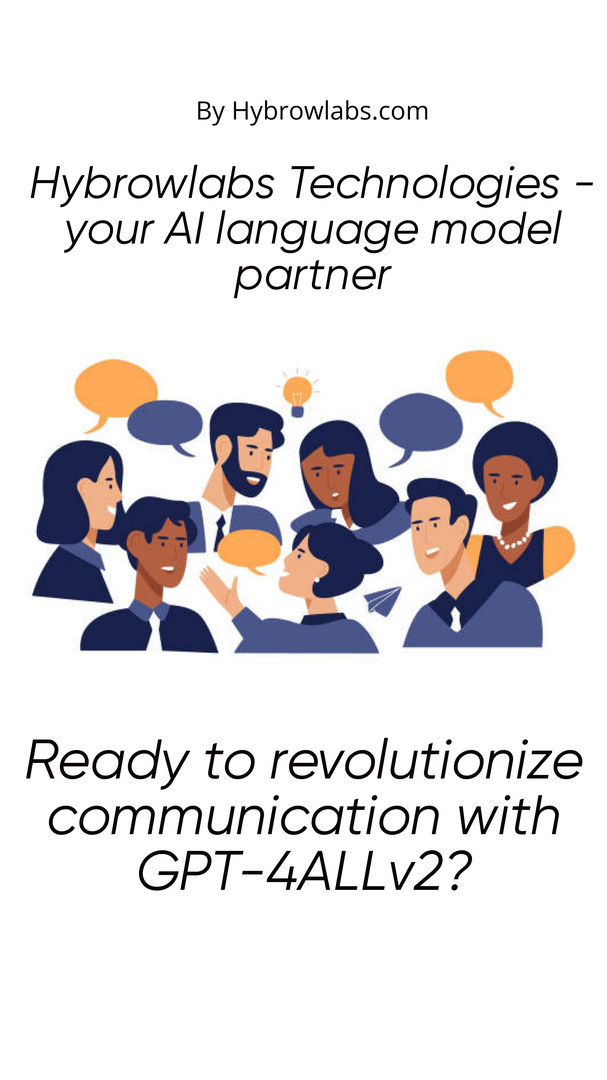
However, while we celebrate the advancements of GPT-4ALLv2 & other AI language models, we must also be aware of their limitations & potential ethical concerns. These models are not without biases and require constant updates to stay relevant & there is a need to ensure that they are developed & used in a responsible & transparent manner.
At Hybrowlabs Technologies, we understand the power & potential of AI language models like GPT-4ALLv2. Our team of experts is dedicated to developing cutting-edge solutions that harness the power of AI to transform the way businesses operate & communicate.
Whether you need text completion & generation, sentiment analysis, translation, chatbots & virtual assistants, or content creation & curation, we can help you leverage the power of AI language models to achieve your goals. Our solutions are tailored to meet the unique needs of your business & we take a transparent & collaborative approach to ensure that you are fully involved in the development process. Contact us today
FAQ-
1. What are some applications of GPT-4ALLv2?
GPT4ALLv2 has numerous applications, including text completion and generation, sentiment analysis, translation, chatbots and virtual assistants, and content creation and curation.
2. What kind of training data is required for GPT-4ALLv2?
GPT-4ALLv2 requires large amounts of text data in order to learn and improve its language processing capabilities. The more diverse the data, the better the model's performance is likely to be.
3. Can GPT-4ALLv2 be used for other applications besides language processing?
While GPT-4ALLv2 is primarily designed for language processing tasks, it can potentially be applied to other areas such as image recognition, natural language understanding, and more.
4. How does GPT-4ALLv2 differ from earlier GPT versions?
Because of developments in deep learning methods, greater datasets, and improved technology, GPT-4ALLv2 is predicted to be substantially more powerful and capable than prior versions of GPT.
5. What ethical concerns are raised by the use of GPT-4ALLv2?
When utilizing GPT-4ALLv2, there are ethical aspects to be aware of, as with any AI technology, notably in areas such as bias, privacy, and transparency. It is critical to thoroughly assess the potential societal impact of this technology and to take action to mitigate any negative outcomes.



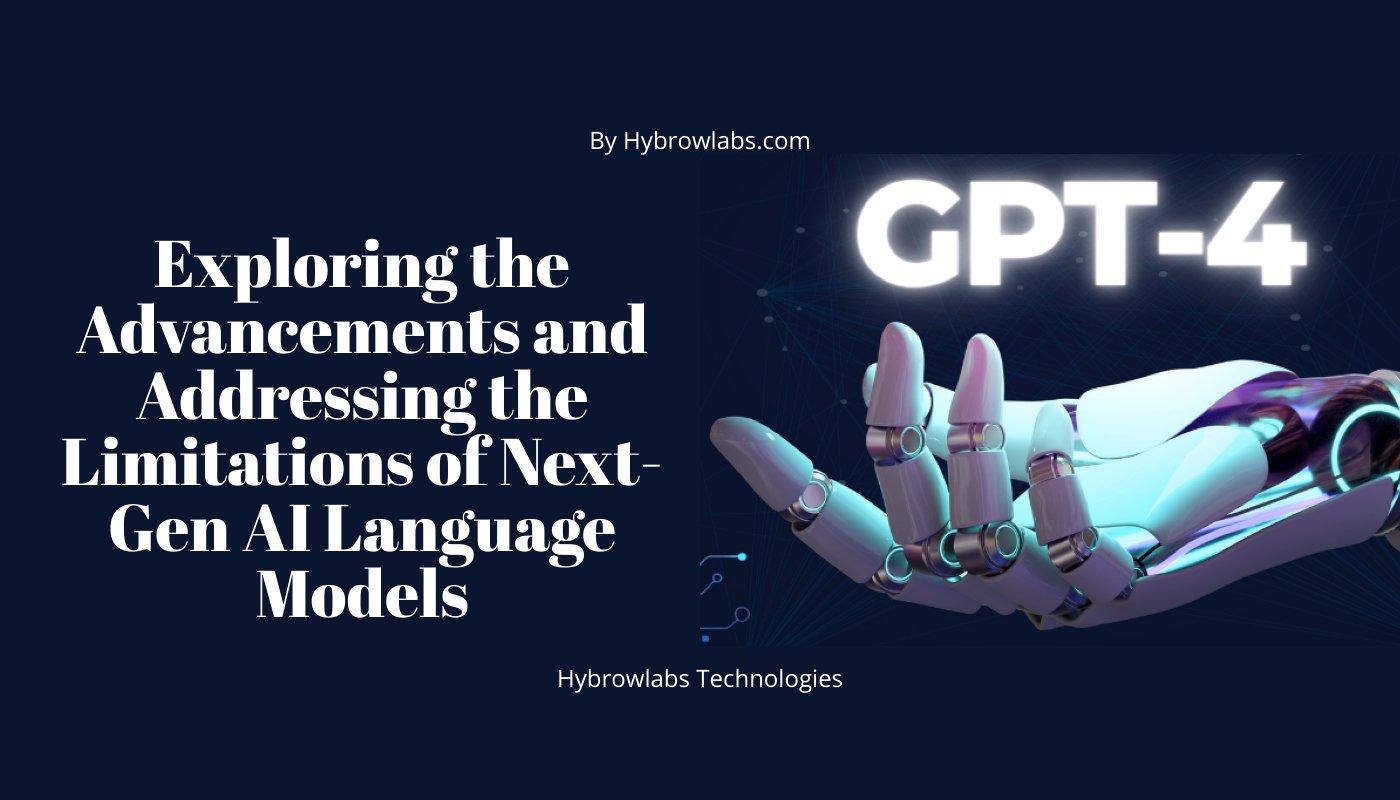


a3dc85.jpg)

.jpg)
fd8f11.png)
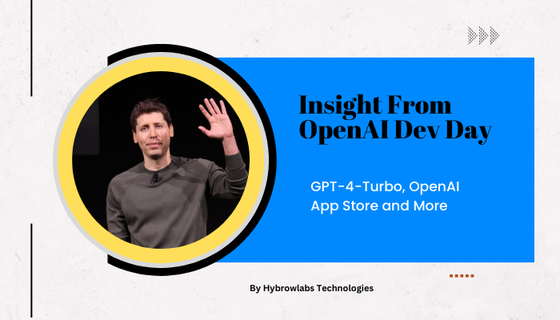
.jpg)
.jpg)